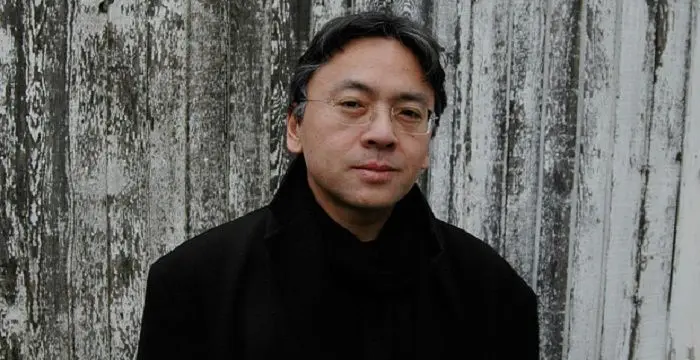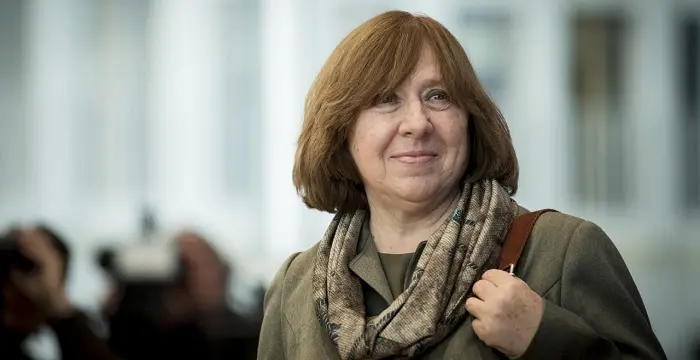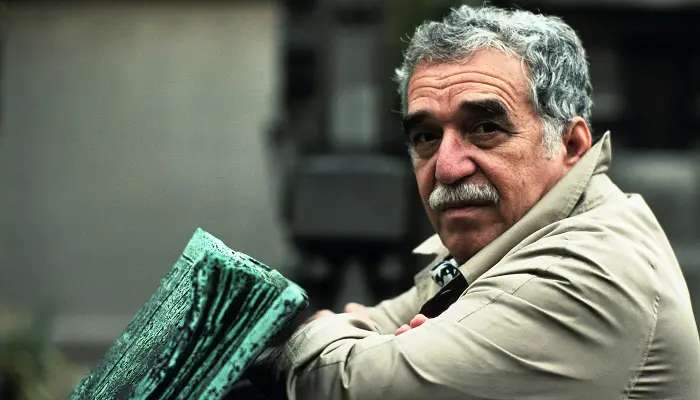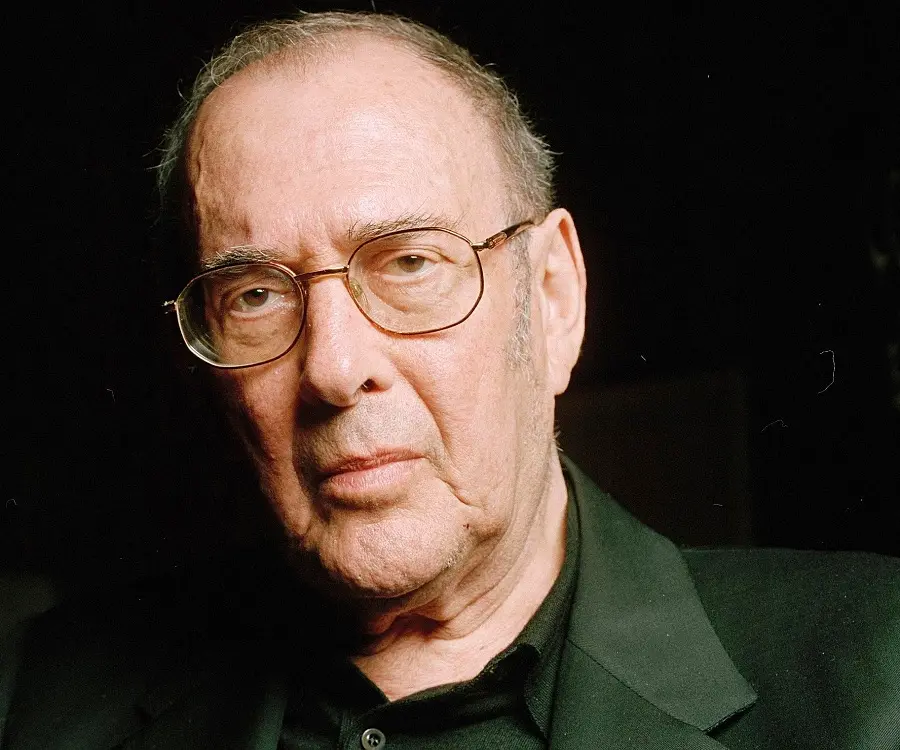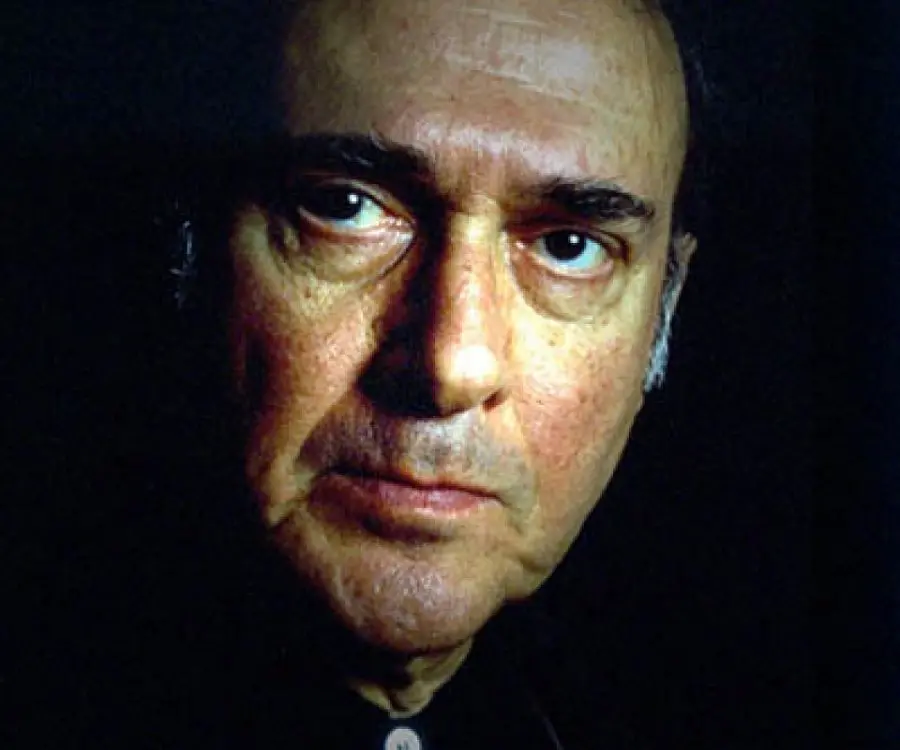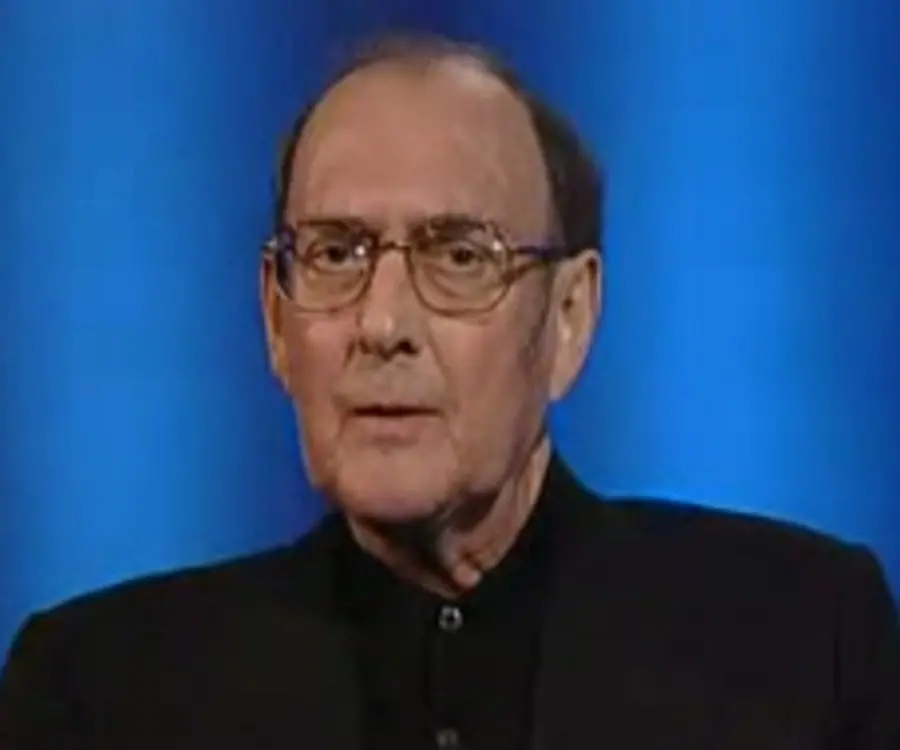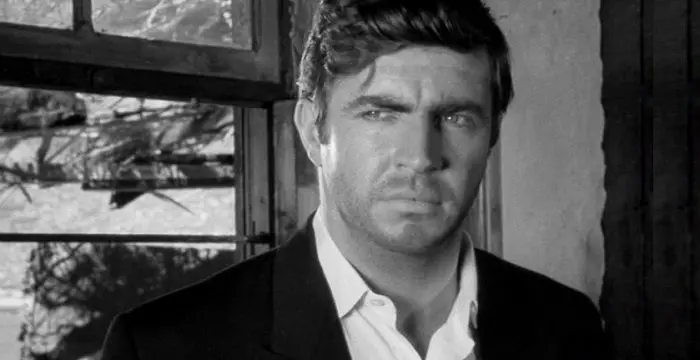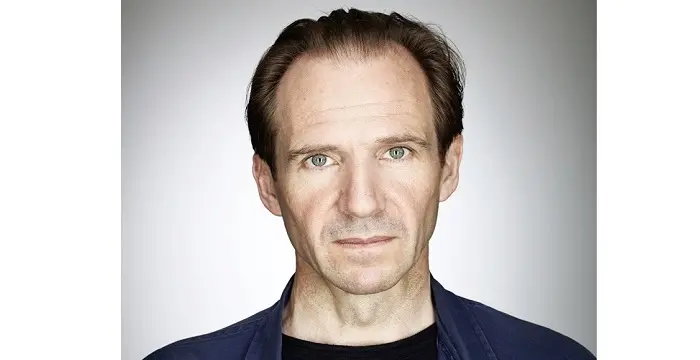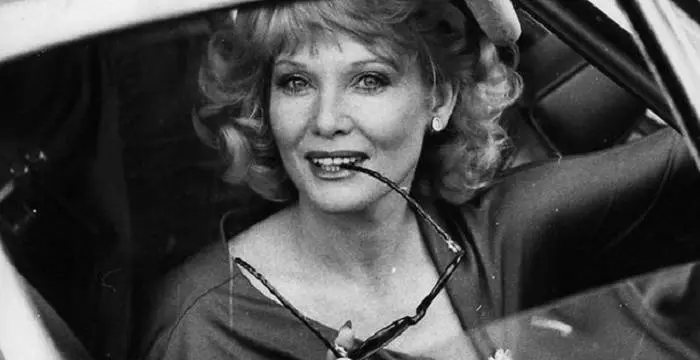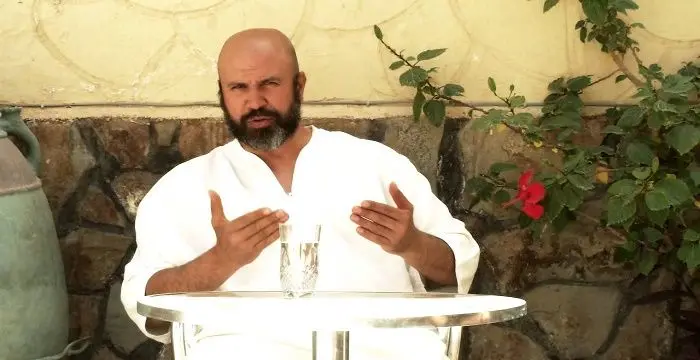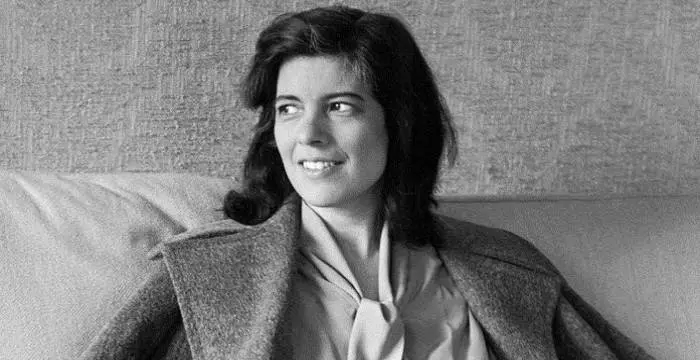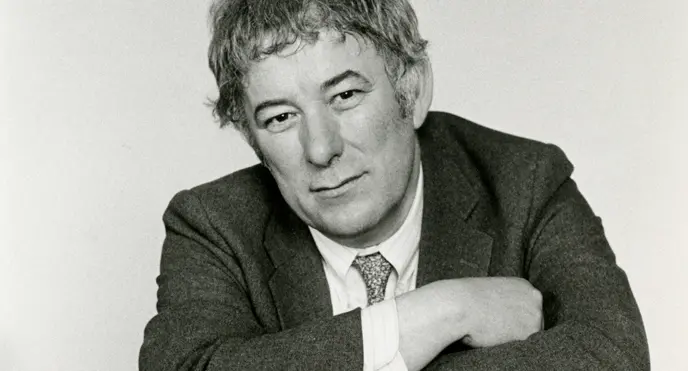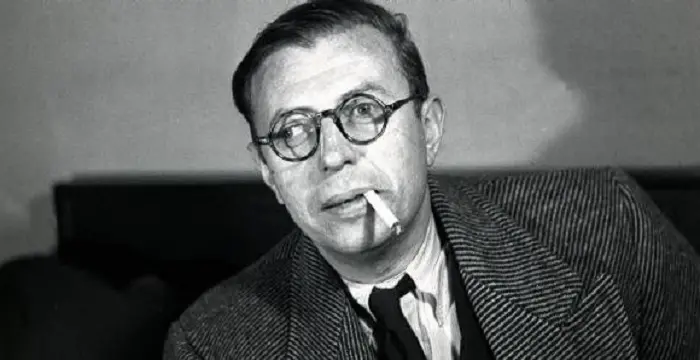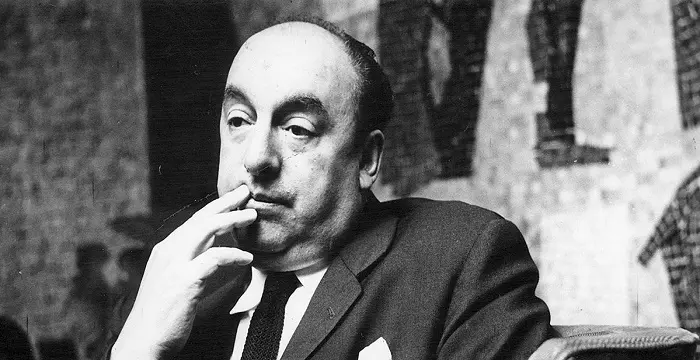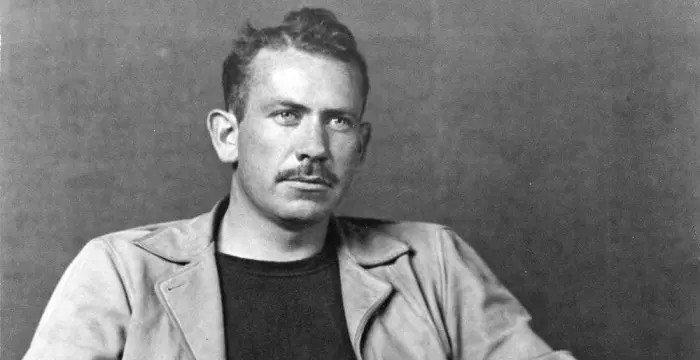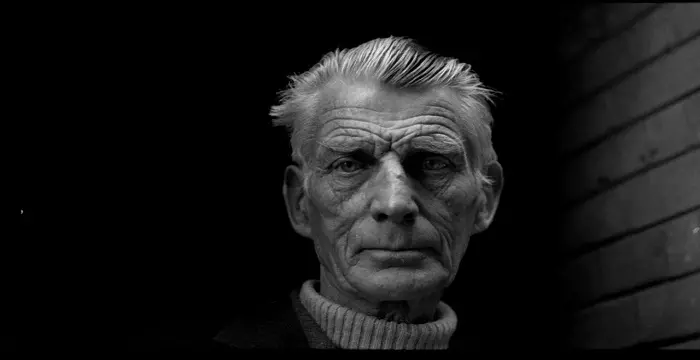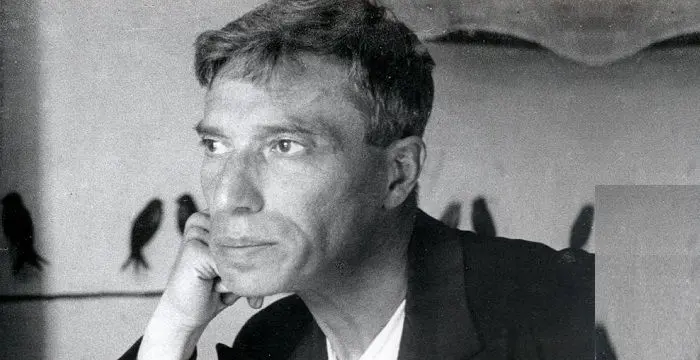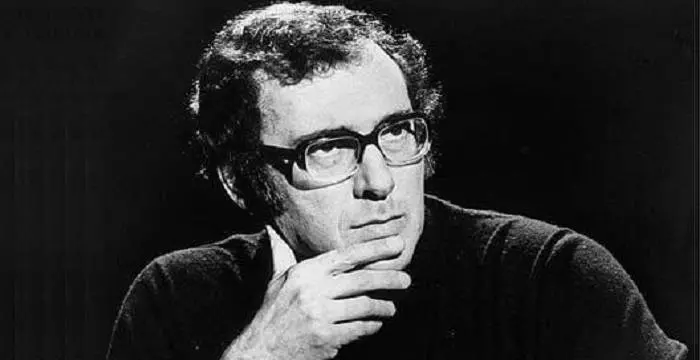
Harold Pinter - Nobel Prize Winner in Literature, Life Achievements and Childhood
Harold Pinter's Personal Details
Harold Pinter was an English playwright, poet, screenwriter, director, actor who won the 2005 Nobel Prize in Literature
| Information | Detail |
|---|---|
| Birthday | October 10, 1930 |
| Died on | December 24, 2008 |
| Nationality | British |
| Famous | Nobel Laureates In Literature, Royal Academy Of Dramatic Art, Film & Theater Personalities, Directors, Poets, Playwrights, Nobel Prize Winner in Literature |
| Spouses | Antonia Fraser, Vivien Merchant |
| Childrens | Daniel Brand Pinter |
| Universities |
|
| Notable Alumnis |
|
| Cause of death |
|
| Birth Place | Metropolitan Borough of Hackney |
| Religion | Judaism, Catholicism, Atheism |
| Gender | Male |
| Father | Jack Pinter |
| Mother | Frances Pinter |
| Sun Sign | Libra |
| Born in | Metropolitan Borough of Hackney |
| Famous as | Nobel Prize Winner in Literature |
| Died at Age | 78 |
// Famous Nobel Prize Winner in Literature
Kazuo Ishiguro
Kazuo Ishiguro is a Japanese-born British novelist who won the Nobel Prize in Literature in 2017. Check out this biography to know about his childhood, family life, achievements and fun facts about him.
Svetlana Alexievich
Svetlana Alexievich is an eminent Belarusian journalist and writer who won the 2015 Nobel Prize in Literature. Check out this biography to know about her childhood, life, achievements, works & timeline.
Gabriel Garcia Marquez
Gabriel Garcia Marquez was a Colombian novelist counted among the greatest writers of the 20th century. This biography of Gabriel Garcia Marquez provides detailed information about his childhood, life, achievements, works & timeline.
Harold Pinter's photo
Who is Harold Pinter?
Harold Pinter was an English playwright, poet, screenwriter, director, actor who won the 2005 Nobel Prize in Literature. As a child, he witnessed the bombing of London by Nazi forces during the Second World War. Later, he was evacuated to Cornwall and Reading, where he led a lonely life. These incidents left a lasting mark in his young mind. As a result, he developed an aversion to war from the very beginning and when he was called to join the National Service, he refused as a conscientious objector. Instead, he chose acting as a means of self-expression and very soon started writing dramas. Although his works can be separated into three categories in general, they are noted for the clever use of small talks and understatements. He also used silence to convey the innermost thought of the character, which often contradicted his statements. Indeed, his works were undeniably original and powerful. They conveyed a message that was hard to ignore. In later life, he became increasingly focused on political issues. He strongly opposed wars and actively joined the anti war movement. He also worked to establish human rights everywhere in this world.
// Famous Royal Academy Of Dramatic Art
Alan Bates
Sir Alan Arthur Bates was an English actor considered amongst the finest performers of his generation. This biography of Alan Bates provides detailed information about his childhood, life, achievements, works & timeline.
Ralph Fiennes
Ralph Fiennes is a noted English stage and film actor. This biography provides detailed information on his childhood, life, career, achievements and timeline.
Diane Cilento
Diane Cilento was an Australian actress known for her work in the movie ‘Tom Jones.’ Check out this biography to know about her childhood, family life, achievements, and fun facts about her.
Childhood & Early Year
Harold Pinter was born on October 10, 1930 in Hackney, East London. Although it was initially believed that they were Sephardi Jews having their roots in Spain later researches have found that the family was actually Ashkenazi Jews with Eastern European ancestry.
Harold was the only child of his parents Hyman and Frances Printers, While Hyman, popularly known as Jack, was a ladies’ tailor Frances was a homemaker. Their home was located off Lower Clapton Road. Harold spent a lot of time in the backyard of this house talking to imaginary friends.
When in 1940, the German forces started bombing London, nine year old Harold was evacuated first to Cornwall and then to Reading. The incident left a lasting mark on his young mind. The bewilderment, loneliness and separation that he experienced at that time were reflected repeatedly in his writings later on.
He joined Hackney Downs School in 1944 and studied there till 1948. At Hackney, he was much influenced by his English teacher Joseph Brearley and studied the works of eminent writers like Dostoyevsky, Kafka, Eliot, Lawrence, Woolf and Hemingway.
Under Brearley’s guidance, he not only excelled in English, but also started writing for school magazine and took part in school drama. At the same time, he also developed a lifelong passion for cricket and enjoyed running. He broke his school’s record in sprinting.
This was also the time he began to grow a belief in male bonding and made many good friends. Among them were Henry Woolf, Michael Goldstein and Morris Wernick. He maintained a lifelong friendship with them.
On graduating from school in 1948, he entered Royal Academy of Dramatic Art (RADA). In the same year in autumn, he received the call up paper for National Service; but refused to enlist as a conscientious objector and risked being imprisonment. However, he was let off with a fine.
Career
Harold Pinter left RADA in 1949 and enrolled at the Royal Central School of Speech & Drama. In 1951, he started working for Anew McMaster's Shakespearean Irish touring company and played over a dozen roles over a period of two years.
Later in 1953, he joined Donald Wolfit's company in Hammersmith and worked with them until 1954. Next he took up the stage name of David Baron and enacted around 20 roles under this name. To supplement his income he had to take up small jobs like dishwashing and snow shovelling.
At the same time, he continued writing poems as well as prose. This was also the time when he started writing an autobiographical novel on the life of his old neighbourhood Hackney. The book was published as ‘The Dwarf’ in 1990.
He got his first break as a playwright in 1957, when his old friend Henry Woolf, asked him to write a play for the recently established drama department of the University of Bristol. He wrote ‘The Room’, which depicted a recluse resisting the pressures of the outside world.
The Room’ attracted the attention of theatre producer, Michael Cordon. In 1958, he staged Pinter’s next play, ’Birthday Party’. Although the play was warmly received in pre-London tour, it drew very bad review in London and had to be taken off the stage in eight days. Ironically, the same play was considered a classic few years later.
In spite of such initial failures, he went on writing and in 1959, produced radio play titled ‘A Slight Ache’. He had his first taste of success in 1960 with his play ‘Caretaker’ and became a celebrity when in 1967, his ‘Homecoming’, originally written in 1964, reached Broadway.
Throughout his life, he wrote 29 plays and 18 dramatic sketches. In addition, he also co-authored two plays. Many of these works were later adopted for televisions shows and cinema.
Along with writing many absorbing plays, Pinter also directed more than fifty productions for stage, television and film. Some of these plays were written by him; but he also directed plays written by other eminent playwrights.
He was equally successful as an actor. His role as Saul Abraham in 1976 film ‘Rogue Male’ earned him great recognition. Some of his other important films are Mojo (1997), Mansfield Park (1998), ‘The Tailor of Panama’ (2001) etc.
Major Works
Pinter’s major works can be divided into three categories. His early plays were rooted in ‘absurdism’. ‘The Birthday Party’ (1958), ‘The Dumb Waiter’ (1959) and ‘The Caretaker’ (1960) fall in the category. These plays have been termed as ‘Comedy of Menace’.
From 1968 to 1982, Pinter began to explore the complex characteristics of human memory. Critics have termed these works as ‘Memory Plays’. Some of the major works of this category are: ‘Landscape’ (1968), ‘Silence’ (1969), ‘Night’ (1969), ‘Old Times’ (1971), ‘No Man's Land’ (1975), ‘The Proust Screenplay’ (1977), ‘Betrayal’ (1978), ‘Family Voices’ (1981), ‘Victoria Station’ (1982), and ‘A Kind of Alaska’ (1982).
Next from the beginning of the 1980s till 2000s, Pinter’s plays became overtly political. ‘One for the Road’ (1984) is first major work of these category. The play is said to be his statement about human rights abuses under totalitarian rule.
Awards & Achievements
In 1966, Harold Pinter was made a Commander of the Order of the British Empire (CBE). From then on, he had received around fifty national and international awards and prizes as well as honorary degrees from many established universities from across the world
In 2005, he received Nobel Prize in literature. In the Nobel lecture, held in the Swedish Academy on the evening of December 7, he attacked US government for its invasion of Iraq and condemned the British government for supporting it.
On January 18, 2007 he was conferred the Légion d'honneur by the French Prime Minister at a ceremony at the French Embassy in London. It was probably the last major honor received by him.
Personal Life & Legacy
In 1956, Harold Pinter married English actress Viven Merchant. He was still a struggling artist and Viven offered him the necessary support and bore him his only child, a son named Daniel. The marriage began to disintegrate from the middle of 1960s and finally, the couple divorced in 1980.
From 1975, Pinter developed a close relation with historian Antonia Fraser. They got married in 1980 after Pinter obtained his divorce. The union, which lasted until his death in 2008, did not produce any more children. However, he had six stepchildren from Fraser’s first marriage.
In December 2001, Harold Pinter was diagnosed with oesophagal cancer and underwent chemotherapy several times. In spite of such deadly disease he led an active life.
He died of liver cancer on December 24, 2008.
His funeral was conducted on December 31, 2008 at the graveside in Kensal Green Cemetery. In the half an hour secular ceremony passages were read from seven of his works and one from ‘The Dead’ written by James Joyce. These were selected in advance by Pinter himself.
In 2009, English PEN established ‘PEN Printer Prize’. It is awarded annually to a British writer who among other things defines the real truth about human life and society through his works.
In September, 2011, the Comedy Theatre, Panton Street, London was renamed as the Harold Pinter Theatre in the memory of the great playwright.
// Famous Directors
Kevin Costner
Kevin Costner is an American actor, director and singer who is best known for his portrayal of rugged individuals with complex emotions. This biography provides detailed information about his childhood, life, achievements, works & timeline
Michel Qissi
Michel Qissi is a Moroccan-Belgian actor known for his role in the martial arts flick ‘Kickboxer.’ Check out this biography to know about his childhood, family life, achievements and fun facts about him.
Susan Sontag
Susan Sontag is an American critical essayist, cultural analyst, novelist, political activist, filmmaker and playwright of international repute. Read on to find out more about her childhood, career, profile and timeline.
Harold Pinter's awards
| Year | Name | Award |
|---|---|---|
BAFTA Awards | ||
| 1972 | Best Screenplay | The Go-Between (1971) |
| 1965 | Best British Screenplay | The Pumpkin Eater (1964) |
Harold Pinter biography timelines
- // 10th Oct 1930Harold Pinter was born on October 10, 1930 in Hackney, East London. Although it was initially believed that they were Sephardi Jews having their roots in Spain later researches have found that the family was actually Ashkenazi Jews with Eastern European ancestry.
- // 1940When in 1940, the German forces started bombing London, nine year old Harold was evacuated first to Cornwall and then to Reading. The incident left a lasting mark on his young mind. The bewilderment, loneliness and separation that he experienced at that time were reflected repeatedly in his writings later on.
- // 1944 To 1948He joined Hackney Downs School in 1944 and studied there till 1948. At Hackney, he was much influenced by his English teacher Joseph Brearley and studied the works of eminent writers like Dostoyevsky, Kafka, Eliot, Lawrence, Woolf and Hemingway.
- // 1948On graduating from school in 1948, he entered Royal Academy of Dramatic Art (RADA). In the same year in autumn, he received the call up paper for National Service; but refused to enlist as a conscientious objector and risked being imprisonment. However, he was let off with a fine.
- // 1949 To 1951Harold Pinter left RADA in 1949 and enrolled at the Royal Central School of Speech & Drama. In 1951, he started working for Anew McMaster's Shakespearean Irish touring company and played over a dozen roles over a period of two years.
- // 1953 To 1954Later in 1953, he joined Donald Wolfit's company in Hammersmith and worked with them until 1954. Next he took up the stage name of David Baron and enacted around 20 roles under this name. To supplement his income he had to take up small jobs like dishwashing and snow shovelling.
- // 1956 To 1980In 1956, Harold Pinter married English actress Viven Merchant. He was still a struggling artist and Viven offered him the necessary support and bore him his only child, a son named Daniel. The marriage began to disintegrate from the middle of 1960s and finally, the couple divorced in 1980.
- // 1957He got his first break as a playwright in 1957, when his old friend Henry Woolf, asked him to write a play for the recently established drama department of the University of Bristol. He wrote ‘The Room’, which depicted a recluse resisting the pressures of the outside world.
- // 1958The Room’ attracted the attention of theatre producer, Michael Cordon. In 1958, he staged Pinter’s next play, ’Birthday Party’. Although the play was warmly received in pre-London tour, it drew very bad review in London and had to be taken off the stage in eight days. Ironically, the same play was considered a classic few years later.
- // 1966In 1966, Harold Pinter was made a Commander of the Order of the British Empire (CBE). From then on, he had received around fifty national and international awards and prizes as well as honorary degrees from many established universities from across the world
- // 1976He was equally successful as an actor. His role as Saul Abraham in 1976 film ‘Rogue Male’ earned him great recognition. Some of his other important films are Mojo (1997), Mansfield Park (1998), ‘The Tailor of Panama’ (2001) etc.
- // 1984Next from the beginning of the 1980s till 2000s, Pinter’s plays became overtly political. ‘One for the Road’ (1984) is first major work of these category. The play is said to be his statement about human rights abuses under totalitarian rule.
- // 1990At the same time, he continued writing poems as well as prose. This was also the time when he started writing an autobiographical novel on the life of his old neighbourhood Hackney. The book was published as ‘The Dwarf’ in 1990.
- // Dec 2001In December 2001, Harold Pinter was diagnosed with oesophagal cancer and underwent chemotherapy several times. In spite of such deadly disease he led an active life.
- // 2005In 2005, he received Nobel Prize in literature. In the Nobel lecture, held in the Swedish Academy on the evening of December 7, he attacked US government for its invasion of Iraq and condemned the British government for supporting it.
- // 18th Jan 2007On January 18, 2007 he was conferred the Légion d'honneur by the French Prime Minister at a ceremony at the French Embassy in London. It was probably the last major honor received by him.
- // 24th Dec 2008He died of liver cancer on December 24, 2008.
- // 31st Dec 2008His funeral was conducted on December 31, 2008 at the graveside in Kensal Green Cemetery. In the half an hour secular ceremony passages were read from seven of his works and one from ‘The Dead’ written by James Joyce. These were selected in advance by Pinter himself.
// Famous Nobel Laureates In Literature
Seamus Heaney
Nobel Laureate Seamus Heaney was an Irish poet, playwright and translator. Know about his profile, childhood, life and timeline in the biography below.
Jean-Paul Sartre
Jean-Paul Sartre was a great existentialist philosopher of the 20th century. Check out this biography to know about his childhood, family life, achievements and other facts related to his life.
Pablo Neruda
Pablo Neruda was a Chilean poet, politician and Nobel laureate. Go through this biography to learn more about his profile, childhood, life and timeline.
John Steinbeck
John Steinbeck was a celebrated American writer famous for his novel, ‘The Grapes of Wrath’. Read on for detailed information about his childhood, profile, career and timeline
Samuel Beckett
Samuel Beckett was an Irish playwright, novelist, theatre director and poet. This biography profiles his childhood, life, works, achievements and timeline
Boris Pasternak
Boris Leonidovich Pasternak was a Russian novelist, poet and translator. This biography of Boris Pasternak provides detailed information about his childhood, life, writing career, achievements and timeline.
Harold Pinter's FAQ
What is Harold Pinter birthday?
Harold Pinter was born at 1930-10-10
When was Harold Pinter died?
Harold Pinter was died at 2008-12-24
Where was Harold Pinter died?
Harold Pinter was died in London
Which age was Harold Pinter died?
Harold Pinter was died at age 78
Where is Harold Pinter's birth place?
Harold Pinter was born in Metropolitan Borough of Hackney
What is Harold Pinter nationalities?
Harold Pinter's nationalities is British
Who is Harold Pinter spouses?
Harold Pinter's spouses is Antonia Fraser, Vivien Merchant
Who is Harold Pinter childrens?
Harold Pinter's childrens is Daniel Brand Pinter
What was Harold Pinter universities?
Harold Pinter studied at Royal Academy Of Dramatic Art, Central School of Speech and Drama, Hackney Downs School, Royal Academy of Dramatic Art
What was Harold Pinter notable alumnis?
Harold Pinter's notable alumnis is Royal Academy Of Dramatic Art
What is Harold Pinter's cause of dead?
Harold Pinter dead because of Cancer
What is Harold Pinter's religion?
Harold Pinter's religion is Judaism, Catholicism, Atheism
Who is Harold Pinter's father?
Harold Pinter's father is Jack Pinter
Who is Harold Pinter's mother?
Harold Pinter's mother is Frances Pinter
What is Harold Pinter's sun sign?
Harold Pinter is Libra
How famous is Harold Pinter?
Harold Pinter is famouse as Nobel Prize Winner in Literature
